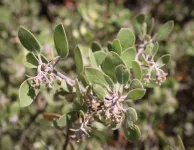(Press-News.org) Named LLM4SD (Large Language Model 4 Scientific Discovery), the new AI system is an interactive Large Language Model (LLM) tool which can carry out basic steps of scientific research i.e. retrieve useful information from literature and develop hypotheses from data analysis. The tool is freely available and open source.
When asked, the system is also able to provide insights to explain its results, a feature that is not available for many current scientific validation tools.
LLM4SD was tested with 58 separate research tasks relating to molecular properties across four different scientific domains: physiology, physical chemistry, biophysics and quantum mechanics.
Lead co-author of the research, PhD candidate Yizhen Zheng, is from the Department of Data Science and AI at Monash University’s Faculty of Information Technology.
“Just like ChatGPT writes essays or solves math problems, our LLM4SD tool reads decades of scientific literature and analyses lab data to predict how molecules behave—answering questions like, ‘Can this drug cross the brain’s protective barrier?’ or ‘Will this compound dissolve in water?’,” Mr Zheng said.
“Apart from outperforming current validation tools that operate like a ’black box’, this system can explain its analysis process, predictions and results using simple rules, which can help scientists trust and act on its insights.”
The LLM4SD tool outperformed state-of-the-art scientific tools that are currently used to carry out these tasks; for example, it boosted accuracy by up to 48 per cent in predicting quantum properties critical for materials design.
The study’s lead co-authors include PhD candidate Huan Yee Koh who is jointly at Monash University’s Department of Data Science and AI and the Monash Institute of Pharmaceutical Sciences, and PhD candidate Jiaxin Ju from the School of Information and Communication Technology at Griffith University.
"Rather than replacing traditional machine learning models, LLM4SD enhances them by synthesizing knowledge and generating interpretable explanations," Ms Ju said.
"This approach ensures that AI-driven predictions remain reliable, and accessible to researchers across different scientific disciplines," Mr Koh added.
Data scientist, AI expert and co-author of the research, Professor Geoff Webb from Monash’s Faculty of Information Technology, said that LLMs can accurately mimic the key scientific discovery skills of synthesising knowledge from the literature and developing hypotheses by interpreting data.
“We are already fully immersed in the age of generative AI and we need to start harnessing this as much as possible to advance science, while ensuring we are developing it ethically,” Professor Webb said.
“This tool has the potential to make the drug discovery process easier, faster and more accurate and become a supercharged research support for scientists in every field all across the world.”
Research co-author Professor Shirui Pan is a data mining and machine learning expert and an ARC Future Fellow with the School of Information and Communication Technology at Griffith University.
“A model like LLM4SD can rapidly synthesize decades of prior knowledge and then turn around to spot new patterns in the data that might not be widely reported,” Professor Pan said.
“We see this as a key development in speeding up research and development processes and beyond."
The research was a collaboration between AI and drug discovery researchers at Monash University’s Faculty of Information Technology, Monash Institute of Pharmaceutical Sciences and Griffith University.
The project was supported by an Australian Research Council (ARC) grant, a National Health and Medical Research Council of Australia Ideas grant and an ARC Future Fellowship.
Co-authors of the research, PhD candidate Yizhen Zheng and Professor Geoff Webb from Monash’s Department of Data Science and Artificial Intelligence at the Faculty of Information Technology, are available for interviews.
To read the full research paper, please click here.
END
Simulating scientists: New tool for AI-powered scientific discovery
2025-02-26
ELSE PRESS RELEASES FROM THIS DATE:
Helium in the Earth's core
2025-02-26
Researchers from Japan and Taiwan reveal for the first time that helium, usually considered chemically inert, can bond with iron under high pressures. They used a laser-heated diamond anvil cell to find this, and the discovery suggests there could be huge amounts of helium in the Earth’s core. This could challenge long-standing ideas about the planet’s internal structure and history, and may even reveal details of the nebula our solar system coalesced from.
If you’ve ever seen a volcanic eruption and wondered what might be coming ...
Study: First female runner could soon break the 4-minute-mile barrier
2025-02-26
On May 6, 1954, Roger Bannister pushed through the finishing tape at Iffley Road track in Oxford, England, and collapsed into the arms of friends after becoming the first human to run a mile in less than four minutes.
“It was the running equivalent to summiting Mount Everest for the first time,” said University of Colorado Boulder Integrative Physiology Professor Rodger Kram. “Prior to Bannister, it was considered impossible—beyond the limits of human physiology.”
Seven decades later, a female runner has yet to follow ...
High dietary fish intake may slow disability progression in MS
2025-02-26
A high dietary intake of lean and oily fish may slow the progression of disability in people with multiple sclerosis (MS), suggests a comparative population based study, published online in the Journal of Neurology Neurosurgery & Psychiatry.
The anti-inflammatory and neuroprotective properties of the nutrients found in fish may be key, say the researchers, who add that their findings underscore the potential importance of diet in managing the disease.
Emerging evidence indicates that diet may have a role in the development of inflammatory diseases, including MS, explain the researchers.
While previously published research has linked fish ...
UK Armed Forces servicewomen face unique set of hurdles for abortion access/care
2025-02-26
UK Armed Forces servicewomen needing an abortion face a unique set of hurdles around access and care, as well as stigma and judgemental attitudes from senior (usually male) colleagues, indicates the first study of its kind, published online in the journal BMJ Sexual & Reproductive Health.
Although based on a relatively low response rate, the findings prompt the researchers to call for more information and policy on abortion provision, both for service personnel and military healthcare professionals.
In the UK around 1 in 3 women ...
Use of strong synthetic opioids during surgery linked to poor composite experience of pain
2025-02-26
The use of powerful synthetic opioids, such as sufentanil and remifentanil, during surgery is linked to a subsequent poor ‘pain experience’---a composite of emotional, cognitive, and physical aspects of pain— suggests research published in the open access journal Regional Anesthesia & Pain Medicine.
The findings highlight the need to reassess intraoperative pain relief strategies to reduce complications after surgery and improve the quality of patient care, say the researchers.
Most patients ...
UK innovation to transform treatment for people with type 2 diabetes worldwide
2025-02-26
Millions of people with type 2 diabetes could receive better treatment thanks to a new, simple low-cost tool, according to groundbreaking research announced today at the Diabetes UK Professional Conference 2025 and published in the Lancet.
Researchers at the University of Exeter, funded by the Medical Research Council, Wellcome and NIHR Exeter Biomedical Research Centre, and supported by Diabetes UK, have developed an innovative way of identifying the most effective glucose-lowering drugs for a person with type 2 diabetes. By predicting which drug will lead to the largest reduction in blood glucose ...
AI model can read ECGs to identify female patients at higher risk of heart disease
2025-02-26
Peer reviewed/ Simulation/modelling /People
A new AI model can flag female patients who are at higher risk of heart disease based on an electrocardiogram (ECG).
The researchers say the algorithm, designed specifically for female patients, could enable doctors to identify high-risk women earlier, enabling better treatment and care. Details are published today in Lancet Digital Health.
An ECG records the electrical activity of the heart and is one of the most common medical tests in the world. In ...
Biological organ ages predict disease risk decades in advance
2025-02-26
Our organs age at different rates, and a blood test determining how much they’ve each aged could predict the risk of conditions like lung cancer and heart disease decades later, finds a new study led by University College London (UCL) researchers.
The findings, published in The Lancet Digital Health, show how accelerated ageing in specific organs can predict not only diseases affecting that organ, but diseases across the rest of the body as well.
Lead author Professor Mika Kivimaki (UCL Faculty of Brain Sciences) said: “Our organs function as an integrated system, but they can age at different rates. ...
New manzanita species discovered, already at risk
2025-02-25
A new species of manzanita — a native California shrub famous for its twisted branches and wildfire resilience — has been discovered on the central coast, but its survival is already threatened by urban development that could destroy much of its fragile population.
The discovery is detailed in a new study published in PhytoKeys, where researchers used genetic analysis to confirm the plant as a distinct species. Named Arctostaphylos nipumu to honor the Nipomo Mesa where it was discovered and its indigenous heritage, the species stands out for its shaggy gray bark — ...
Giant ice bulldozers: How ancient glaciers helped life evolve
2025-02-25
New Curtin University research has revealed how massive ancient glaciers acted like giant bulldozers, reshaping Earth’s surface and paving the way for complex life to flourish.
By chemically analysing crystals in ancient rocks, the researchers discovered that as glaciers carved through the landscape, they scraped deep into the Earth’s crust, releasing key minerals that altered ocean chemistry.
This process had a profound impact on our planet’s composition, creating conditions that allowed ...


